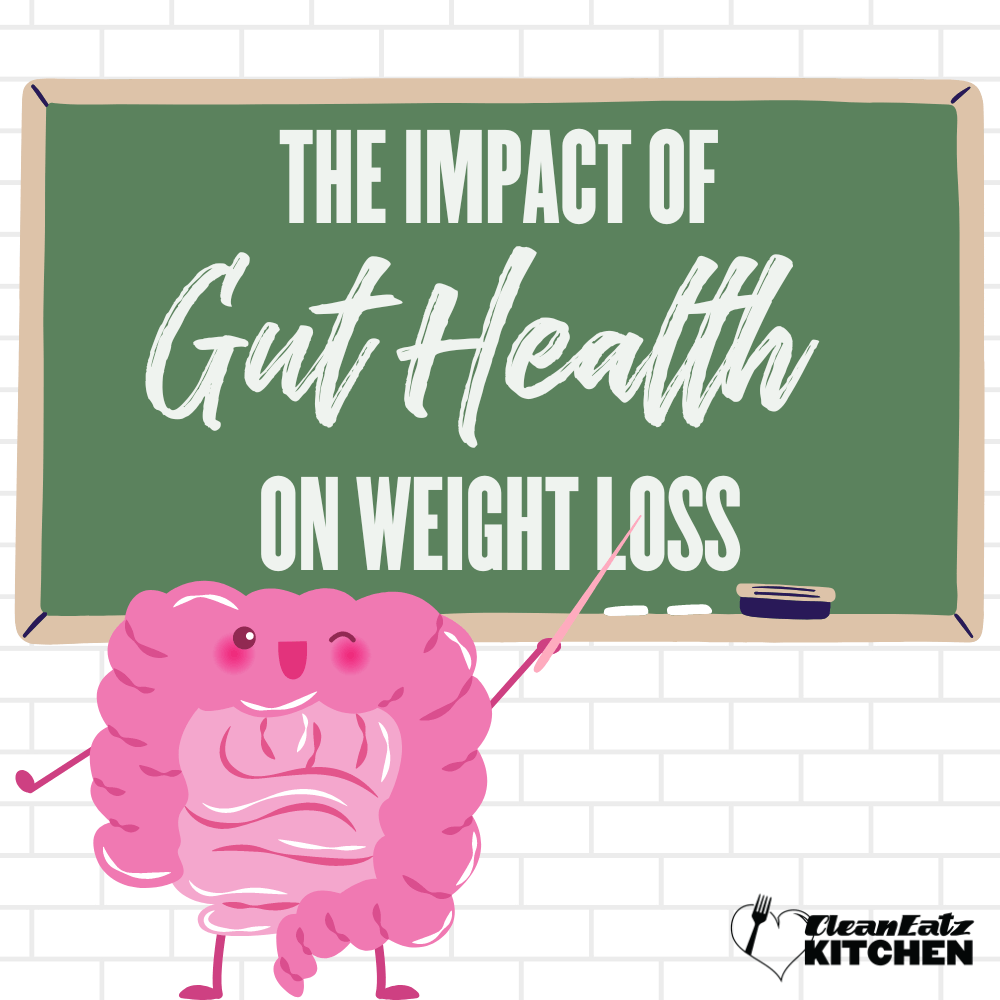
The Connection Between Gut Health and Weight Loss
Jason Nista
Nutrition
|
Weight Loss
|
Healthy Lifestyle
8 minute read
It's no secret that most people struggle to lose weight and keep it off. But what if weight loss was as simple as changing your gut microbiome? The state of your gut health significantly impacts whether or not you can reach your weight loss goals. So, there is a significant connection between gut health and losing weight.
Let's look at how gut health affects our ability to lose weight, how we can tell if our gut is healthy, and how we can improve it.
What Is Gut Bacteria?
Have you heard of “gut bacteria” or the “microbiome” but don’t know what they mean? Studies have shown how important gut bacteria are for our health, and it’s time to learn why. Our microbiome consists of trillions of tiny organisms that either work for us or against us; learning about them can help us keep a healthy internal environment.
Your microbiome is made up of both good and bad bacteria, and the balance between them plays a significant role in your digestive health. When you have enough good bacteria, they are able to crowd out the bad ones, allowing your body to break down food more efficiently.
This helps with digestion and weight loss, as well as overall well-being. These helpful bacteria also provide vitamins and minerals your body needs for daily functioning.
How Does Gut Bacteria Affect Weight?
If you’ve ever wondered why losing weight can be so tricky, you may be surprised to learn that the answer lies in your gut. That's right—your gut health plays a massive role in whether or not you reach and maintain your ideal weight. This is because there is a relationship between gut health and losing weight. There are types of food you eat that can affect your gut microbiome and, consequently, your weight—for example, weight loss meal diets high in processed foods are linked to lower levels of beneficial bacteria in the gut, which can lead to weight gain over time.
The composition of your gut microbiome (the bacteria, viruses, and fungi that live inside your gastrointestinal tract) can directly affect your weight. Studies have found that people with more beneficial bacteria in their guts tend to be leaner than those with less beneficial bacteria.
Additionally, having certain types of beneficial bacteria can help reduce inflammation, which is linked to obesity. So if you want to lose weight, it's essential to pay attention to what kind of bacteria are living in your gut and make sure they are beneficial ones!
How Does Poor Gut Health Impacts Weight Gain?
The bacteria in your digestive tract (also known as the microbiome) play an essential role in your overall health. A healthy balance of bacteria helps digestion, keeps the immune system strong, and even helps to regulate metabolism. When this delicate balance is disrupted, however, it can trigger inflammation in the body, which can then lead to insulin resistance—where the body stops responding properly to insulin—and ultimately result in fat storage and weight gain over time.
Research has also found links between certain types of bacteria and higher levels of belly fat, which is associated with an increased risk for heart disease and other health issues. Therefore, maintaining a balanced weight loss meal plan will impact gut health for weight loss which is vital for both overall health and successful efforts to shed some additional pounds.
How To Improve Gut Bacteria?
There are several ways you can improve your gut health and weight loss:
- Increase fiber intake by including more whole grains such as oats and quinoa.
- Exercise more often since physical activity has been shown to increase beneficial bacterial growth.
- Include more polyphenols (antioxidants) in your diet through fruits and vegetables.
- Avoid artificial sweeteners, which have been linked to an imbalance in certain types of intestinal bacteria.
- Reduce stress levels since high-stress environments have been linked with decreased levels of beneficial microbiota.
- Get enough sleep every night, as sleep deprivation affects our ability to maintain a healthy balance within our gastrointestinal tract.
- Limit sugar intake since sugar feeds bad bacteria while starving out good ones.
- Add more fermented foods such as yogurt or kimchi, which contain probiotics (good bacteria); drink plenty of water throughout the day.
All these tips will help ensure not just better digestion but also improved overall health! Paying attention to these signs and taking steps to restore balance in your digestive system can help improve overall health, energy levels, and even it's possible to improve gut health for weight loss if necessary.
How to Know If You Have a Healthy Gut Microbiome?
The gut microbiome is the bacteria and other microorganisms in our digestive systems. It's a vital part of your overall health, affecting everything from digestion to your immune system. So, how can you tell if you have a healthy gut microbiome? Let's look at some signs that may indicate an imbalance in your digestive system.
Digestive Issues
One of the most common signs of an imbalance in gut bacteria is digestive issues such as bloating after meals, irregular bowel movements, or fatigue after eating. So if you often feel bloated or experience cramping or other gastrointestinal distress after meals, then it could be a sign that your gut isn't functioning optimally and could use some extra support from probiotics or prebiotics (which feed good bacteria).
Skin Problems
Another sign that something might be off with your gut microbiome is skin problems such as acne, eczema, rosacea, psoriasis, or other dry skin conditions. An unhealthy balance of bacteria in the gut can create inflammation which can manifest in the form of skin problems. If you're struggling with any skin issue, it could be time to take a closer look at what's happening inside your body.
Food Intolerances/Sensitivities
If you react negatively to certain foods, it may be due to an imbalance in your gut microbiome. Research has found that having too many harmful bacteria or not enough good bacteria in the digestive system can lead to sensitivities or allergies towards certain types of food due to increased intestinal permeability (aka leaky gut syndrome). If this sounds like something you've been struggling with, then there are steps you can take to restore balance in your digestive system.
Final Thoughts
The gut microbiome is the collection of bacteria and other microorganisms that live in our digestive systems. The balance of good and bad bacteria in the gut microbiome plays a significant role in our ability to digest food, absorb nutrients, regulate metabolism, and maintain a healthy weight. Poor gut health can lead to inflammation, triggering insulin resistance and fat storage. This can be avoided by maintaining a healthy balance of gut bacteria. Some signs of an imbalance in the gut microbiome include digestive issues such as bloating or irregular bowel movements; skin problems; food intolerances or sensitivities; fatigue after eating. There are several ways to improve your gut health: increase fiber intake; exercise more often; eat more fruits and vegetables; avoid artificial sweeteners.
FAQ
How do I reset my gut to lose weight?
To reset your gut for weight loss, focus on adopting a healthy and balanced diet. Include plenty of fiber-rich foods, such as fruits, vegetables, and whole grains. Avoid processed foods, sugary drinks, and excessive alcohol consumption. Additionally, stay hydrated, exercise regularly, manage stress levels, and get enough sleep to support overall gut health and weight loss.
Does gut health improve metabolism?
Yes, maintaining a healthy gut can positively influence metabolism. A well-functioning gut promotes the proper absorption and breakdown of nutrients, which can impact metabolic processes. A diverse and balanced gut microbiome, achieved through a wholesome diet rich in fiber, may help enhance metabolism and support overall health.
What are the 3 superfoods for your gut?
While there isn't a strict definition of "superfoods" for the gut, some foods are particularly beneficial for gut health. Three examples are yogurt and fermented foods, leafy greens, and berries.
Can a bad gut cause weight gain?
Related Articles
How Your Gut Biome Is Connected to Brain Function
15 minute read
Is There a Link Between Genetics and Weight Loss?
6 minute read



